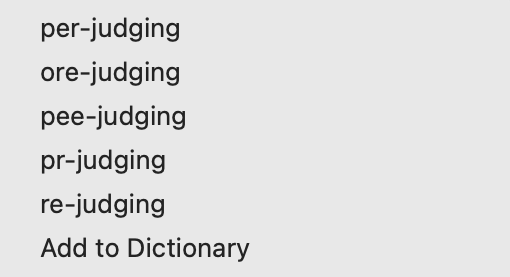Words With “Friends”
New automated writing assistants sometimes help, but often strike a different chord

We’ve all gained new writing companions. First, it was spellcheck, which was limited to underlining words that looked misspelled in documents. Very often, the tool worked, but sometimes, it could be misinformed, or simply unable to recognize a joke or rhetorical flourish.
There was also a brief time where we lived with a virtual friend in Word that shared its opinions about our grammar — but that friend proved to be a pain in the neck and had the decency to show itself out.
Soon enough, however, someone turned up the dial on spellcheck, especially on our phones, and spellcheck morphed into spell correction. Now, sometimes you look back at texts and other things you’ve entered, and realize that as your fingers flew, certain words were substituted without your knowledge or permission. It’s an opt-out system, and a little over-confident. Most instances of interference are just annoying, but some are humorous. My favorite occurred when I texted my wife before takeoff that I was about to “shut down” the phone, and for some reason, another vowel was substituted into “shut.” Her response was priceless.
Auto-correction can lead to struggles entering URLs or other quirky text like brand names, passwords, nicknames, email addresses, and so forth. It can be a frustrating sidekick, but it can work well from time to time. It can also be kind of fun as a version of magnetic poetry in the right setting.
It’s the classic double-edged sword.
If you use Google Docs, you have probably encountered a seemingly passive-aggressive or sarcastic writing companion — the aut0-suggest or auto-complete. Meant to allow you to tab to the end of a predictable sentence, it feels like the tool is playing head games with you — oh, how trite, it whispers as it coldly predicts exactly what was in your mind, pointing out your clichéd writing with brutal efficiency and relentless anticipation. Is that the best you can do? Are you that much of a hack?
While it’s making you feel watched and judged, one error in its design is that its design is based on the idea that people want to write fast instead of well. That is, it rushes you, pushes you, and tries to propel you forward when maybe you shouldn’t be rushed or pushed.
In this way, it breaks the spell of writing. I like to stop and think at certain points in sentences, trying to figure out what to say next, or if what I just wrote makes sense. With 5-10 grayed-out words popping out of my pause, I naturally read them, and my concentration and sense of autonomy are both hampered.
I found this feature annoying, and turned it off. I prefer to write alone.
Which gets to the main issue with these tools — the isolation of writing, the importance of concentration, and the pursuit of “flow” are upset by these little intrusions. It’s like a misplayed note in a song which breaks the spell of the music, or an actor glancing outward and taking you out of the moment. It’s jarring, and feels wrong.
Even as I write this, temporary red dotted lines are appearing beneath words as I type, making me aware that I’m being monitored, that something is tracking me — that I am not alone.
Writing has become social in new ways, as we’re tracked en masse by surveillance technology that follows our every word, learns our rhetorical devices, ingests our clichés, and begins to recognize our patterns of thought, and then attempts to inject what it has learned into our formative thoughts as we write anew.
Does this drive creativity? Or conformity? Does predicting cliché make it more likely? Or drive us away from it? Are the errors inserted into our texts and emails by overzealous auto-correct attributed to us? Or to the technology?
These new “friends” can be helpful now and again. I’m less clear that I like them peering over my shoulder all the time, making mysterious editorial decisions on my behalf, and pre-judging my thoughts as they form. (Note: “pre-judging” is underlined as a misspelled word, and one suggestion to replace it is “pee-judging.” I do not want to know why.)

Are there better approaches? Of course. Maybe we run a spell-check after we’ve written? Maybe the next version of these tools has the auto-correct standing aside until summoned? Maybe typos and quirky writing should be allowed to occur? Maybe creativity is more important than conformity?
After all, the magic in writing comes from the revision process, so why not hold off until that phase? This is another thing that the programs get wrong — the idea that the first draft is the only draft.
Maybe we can be in control of our writing implements again? Maybe we can be served by the process instead of serving it?
Or am I pee-judging the situation? (No red dots on that one.)